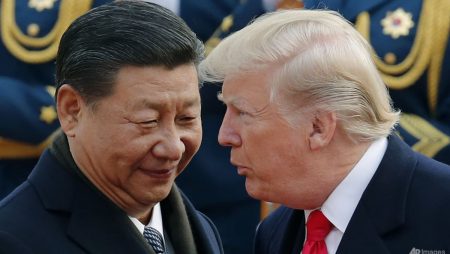Malaysia is currently facing intense criticism from civil society organizations and experts concerning proposed amendments to the laws governing internet usage, particularly under the Communications and Multimedia Act (CMA). Recently introduced in parliament by Communications Minister Fahmi Fadzil, these amendments feature significantly harsher penalties, which critics argue may serve as a covert attempt to establish a comprehensive “fake news” law. The amendments, if passed, will increase fines from RM300,000 to RM1 million and imprisonment terms from three years to ten, reflecting substantial retribution perspectives against various internet offenses.
The proposed changes would introduce new offenses, totaling nine supplemental violations that could lead to severe repercussions. For instance, under the revised Section 233—concerning the inappropriate use of the internet—penalties would escalate from RM50,000 and one year in prison to RM500,000 and two years behind bars. Additionally, new infractions related to licensed telecommunications activities would carry penalties of up to RM500,000 and five years in prison for non-compliance stemming from previously cancelled licenses. While the government justifies these amendments as a means to combat online threats such as cyberbullying, gambling, and sexual offenses against minors, many observers perceive a wider ulterior motive to increase governmental control over digital content.
Critics point to the potential for the Malaysian Communications and Multimedia Commission (MCMC) to wield excessive authority without sufficient oversight. Concerns highlight provisions that may allow the MCMC to engage in censorship and the policing of media and citizens, infringing upon personal freedoms. Dr. Benjamin Loh, a senior lecturer in media studies, characterized these proposed changes as gravely concerning, suggesting they signal a regression towards an oppressive state where governmental powers threaten freedoms in both media and personal spheres. His remarks raise alarm over the broad and vague definitions of the new offenses that could facilitate a selective and punitive enforcement of the law reminiscent of democratic backsliding in the region.
Moreover, the proposed Section 73A would grant MCMC officials the authority to search and seize information from service providers without the safeguards typically associated with journalism, such as the protection of journalistic sources. This provision has attracted pointed criticism from civil society groups like Article 19 and the Centre for Independent Journalism (CIJ), which have underscored its potential to enable violations of press freedoms and broader human rights infringements without adequate checks. The ambiguity of language in the law leaves considerable room for interpretation, which, in Malaysia’s historical context, increases the risk of government overreach and suppression of dissent.
The concerns extend to the legal immunity offered to MCMC personnel under proposed Section 51A, which absolves them from court action while acting in “good faith.” Critics have labeled this clause, which lacks clear definitions or parameters, as providing an opening for the abuse of power and human rights violations. This not only fosters an environment where accountability is diminished but also creates a framework that would allow public officials to operate without fear of repercussions for potential misuse of their newfound powers. Consequently, the possibility of arbitrary investigations under this legal framework raises pressing concerns surrounding due process and access to justice for citizens.
In conclusion, civil society groups and legal experts emphasize that the government has failed to provide a rational basis for the severity of the proposed penalties and the regulatory framework. Critics argue that no meaningful justification exists for the increases in sanctions, and this lack of clarity highlights problems inherent in the amendments. The overriding sentiment is that these legislative changes threaten to erode fundamental rights, suggesting that the government is seeking to consolidate power over the internet in ways that could silence dissent and suppress freedom of expression in Malaysia. As parliament is set to debate these proposed changes imminently, the implications for civil liberties and the trajectory of internet governance in Malaysia remain a critical point of contention.










